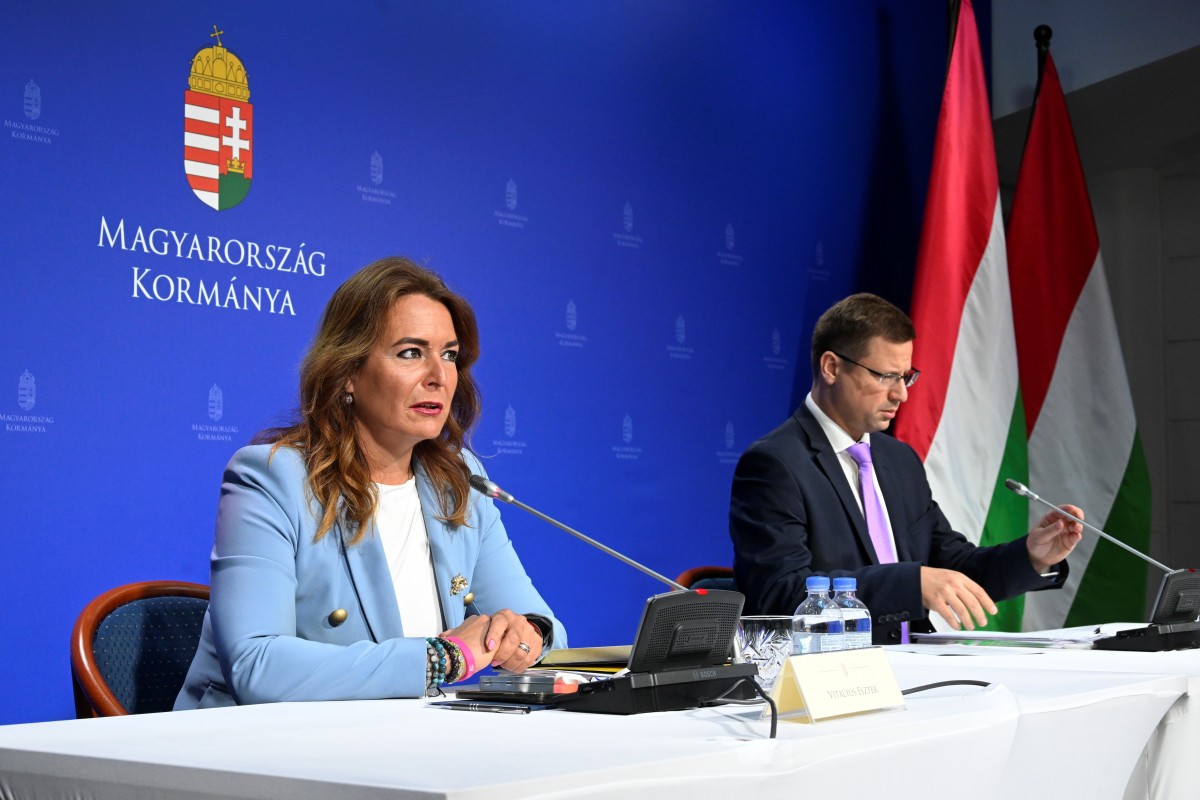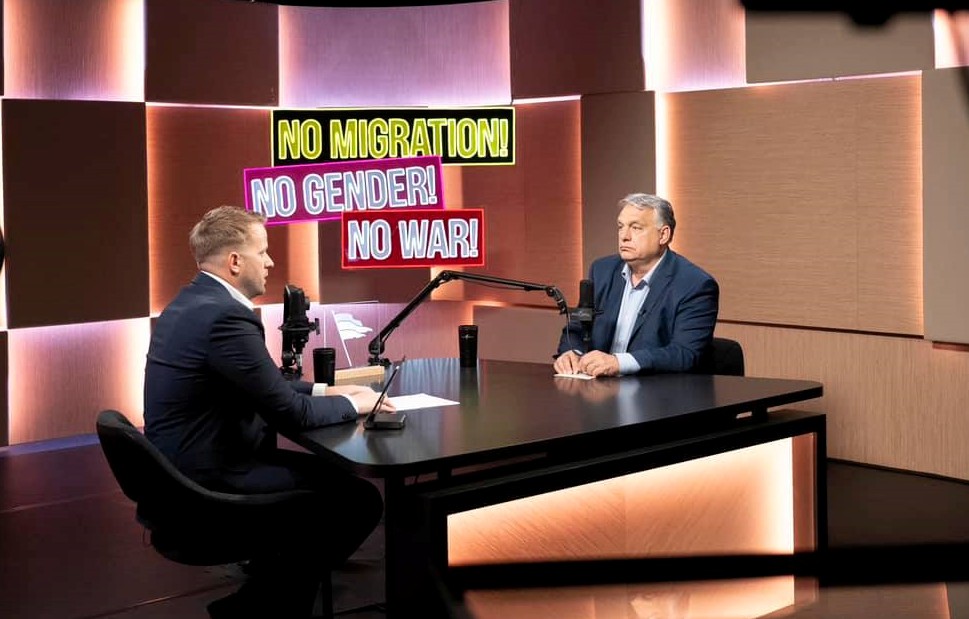
The government's opinion is that NATO should only make a decision from which Hungary can completely opt out.Continue reading

An interview with Hungarian Prime Minister Viktor Orbán was aired on the Patrióta YouTube channel on Sunday afternoon. The main focus of the interview, hosted by Dániel Bohár, was the European Parliament elections, therefore the interviewer was mostly looking for answers to questions on the European Union and geopolitics, reports Index.
The first question was about the assassination attempt on Robert Fico. “The first thing was that it hit me in the heart. The second was that I am in big trouble if I am left alone on the next occasions when it comes to war or other important issues [in Europe],” the Prime Minister said.
The second question was about ideas raised by several Western politicians on the war in Ukraine. Bohár gave the ideas of French President Emmanuel Macron and Polish Prime Minister Donald Tusk as examples. They had previously suggested that NATO should be stationed in Ukraine to train Ukrainian soldiers more quickly, or even to deploy nuclear missiles in Poland. In this context, Viktor Orbán emphasized that
when European politicians talk about nuclear weapons, they think of them as a tactical deterrent with a much weaker range than those used in World War II, which they do not want to use.
“NATO mission in Ukraine? It makes the hairs stand up on the back of my neck,” said the politician. “No world war has ever begun with leaders saying that from now on it will be a world war,” he noted, adding that when Western politicians talk about war, they do not conjure up images like those of the Hungarians who were bombed during World War II.
Asked whether there will be a third world war, or whether the war in Ukraine is a forerunner of one, the Hungarian Prime Minister noted:
We are in a process which in ten years’ time may be said to be a forerunner or the beginning of a third world war.”
He gave the example of the Balkan war and the two world wars, where “we did not know at the beginning that the incidents that triggered them would lead to a war with millions of victims.”
On the cost of the war, Orbán pointed out that European countries had already paid EUR 100 billion into this war, as had the United States. He said that people do not know it, but they are already paying for the war, as the war is responsible for inflation. He also criticized the EU’s strategy towards Ukraine, saying that the high cost of the war had not been calculated in the European Union.
Europe is drifting into a war without having an estimate of the costs and the means to achieve its military objective. I have never seen anything more irresponsible in my life,”
he stressed.
On the escalation of the war, he said it was in Hungary’s interest to stay out of it. According to him, the Hungarian leaders of the time thought the same way during the two world wars, but in the end, Hungary just got dragged into both. The Prime Minister pointed out that the pro-peace movement must take its place on “two fronts” in international politics. On the one hand, in the European Parliament elections, he wants voters to support pro-peace candidates who can force national governments to be pro-peace. On the other front, he identified the U.S. elections in November. If Donald Trump does not win there, he believes that the Democrats will expand the war.
On the media situation, he underlined:
It is possible to argue about war in Hungary, but not in Western Europe.”
According to him, in Western Europe, if someone thinks differently “on issues related to open society, such as LGBTQ, migration, family policy, demography, or war,” they could face retaliation at their workplace.
On the war lobby, he said, it cares whether Hungary stays out of the war or not because
if it turns out that a country can succeed by staying out of it, the lobby fears that others will try to do the same.
The final topic was the EP elections in June, which the Hungarian Prime Minister believes could be an important stage in reshaping European politics and could raise the stakes in the U.S. elections. Criticizing current EU policy, he highlighted:
This is the worst European Commission I have ever seen. The commission has turned into a war council, the European Parliament is slowly [becoming] a war body, while people are moving towards peace.”
He concluded: “They have not delivered on any of their serious commitments. So why should they be kept?”
Via Index, Featured image: Miniszterelnöki Sajtóiroda / Benko Vivien Cher